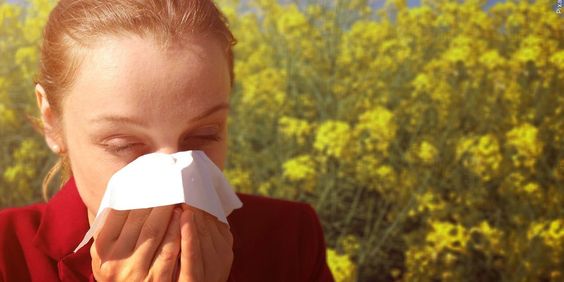Managing Summer Allergies: Treatments and Tips
Summer is a time for enjoying the outdoors, but for many, it also means the return of seasonal allergies. From pollen to mold, summer allergens can trigger a range of uncomfortable symptoms, including sneezing, runny nose, itchy eyes, and congestion. Fortunately, effective treatments and management strategies can help you find relief and enjoy your summer to the fullest.

This guide will explore the common culprits behind summer allergies and provide practical tips for managing symptoms. We'll delve into various treatment options, from over-the-counter remedies to prescription medications, empowering you to make informed decisions about your allergy relief.
Identifying Common Summer Allergens
Understanding the source of your allergies is crucial for effective management. Here are some of the most prevalent summer allergy triggers:
- Pollen: Grasses, trees (especially in early summer), and weeds release tiny pollen grains that can travel long distances in the wind.
- Mold: Warm, humid weather creates ideal conditions for mold growth, both indoors and outdoors.
- Dust Mites: While not specific to summer, dust mites thrive in warm temperatures and can trigger allergic reactions year-round.
Effective Allergy Treatments and Management Strategies
1. Over-the-Counter Relief:
- Antihistamines: These medications block histamine, a chemical released by the body during an allergic reaction. Look for options like cetirizine (Zyrtec), loratadine (Claritin), or fexofenadine (Allegra).
- Nasal Corticosteroids: Nasal sprays like fluticasone (Flonase) or mometasone (Nasonex) reduce nasal inflammation and congestion.
- Decongestants: Oral decongestants (pseudoephedrine, phenylephrine) or nasal sprays (oxymetazoline) can provide temporary relief from congestion. However, oral decongestants can raise blood pressure, and nasal sprays should not be used for more than a few days to prevent rebound congestion.
2. Prescription Medications:
If over-the-counter treatments aren't sufficient, your doctor may recommend:
- Prescription-strength antihistamines or nasal corticosteroids.
- Leukotriene modifiers: These medications, such as montelukast (Singulair), block the action of leukotrienes, which are inflammatory chemicals involved in allergic reactions.
- Immunotherapy (Allergy Shots): This long-term treatment involves receiving regular injections of small amounts of allergens to help your body build tolerance over time.
3. Lifestyle Modifications:
- Monitor Pollen Counts: Pay attention to local pollen forecasts and try to limit outdoor activities during peak pollen times, typically early morning and late afternoon.
- Keep Windows Closed: On high-pollen days, keep windows closed, especially during peak pollen hours.
- Shower After Being Outdoors: Rinse off pollen and other allergens that may have collected on your skin and hair.
- Use Air Purifiers: HEPA air purifiers can help remove allergens from the air in your home.
- Clean Regularly: Dust and vacuum frequently to minimize allergen buildup.
Remember: It's important to consult with a healthcare professional to determine the best course of treatment for your specific allergy needs. They can help you identify your triggers and recommend the most effective medications and strategies to manage your symptoms and enjoy a symptom-free summer!





